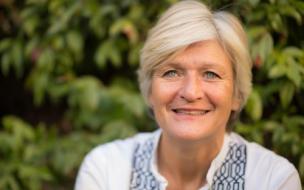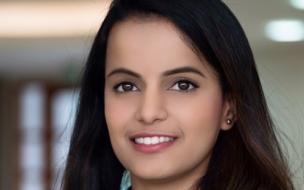Today, Cass Business School stands as a one of the foremost centers of business academia in the UK capital, a culture of philanthropy woven within its very fabric.
David Street has worked as the university’s director of development for the past four years. Inspired by the American cradle-to-the-grave fundraising model, David’s aim is to develop truly life-long relationships with both current students and alumni from around the world.
Under the school’s new dean Marianne Lewis - who relocated from the US in 2015 - the perfect plan is being put in place to support this vision.
David has been in the business of fundraising and development for about 14 years. Prior to joining Cass, he headed up development and alumni relations at the University of East Anglia (UEA), revitalizing a long-dormant development office. East Anglia is where David calls home and he enjoyed his time there. But when Cass came a-calling, the opportunity was too good to pass up.
How did you get into a career working in fundraising and development?
I spent 25 years working in retail banking for Barclays. And a consistent theme throughout that was managing relationships with staff and high net-worth customers. As Barclays started to downsize, it dawned on me that my skills were transferable to other disciplines.
A friend of mine introduced me to a fundraising consultancy. I met with them and they offered me a job. They were then assigned a year contract at UEA and I was put on the case. When the contract came to an end, I was invited to stay on at the university.
What is the best thing about your role at Cass Business School?
The business school is very much on the up. We’re based in the heart of London and we’ve got some outstanding links and relationships that many schools would die for.
I’m very fortunate to work with some of the best minds in the world and I get the opportunity to meet some amazing alumni, donors and friends of the school.
What challenges do you face?
London’s like a large village, there’s lots of institutions here and there’s always stiff competition. So, attracting, recruiting and retaining the very best fundraising and alumni engagement staff is a challenge.
Another challenge is engaging at a high level with all of our alumni. Our alumni are based in 160 countries and we don’t have the resources to engage with them all in the same way, all the time.
The most important thing is making sure what we do is strategically important to the business school. We position our offering based on the needs of our students. A lot of donors might think they know what students want, but our students’ actual needs are most important because they’re going to be our next group of alumni.
What projects are you fundraising for this year?
By far the most popular area for support, and the greatest need for us, is for scholarships.
I genuinely think that we’re changing lives. We’re giving opportunities to young people who might not otherwise come here.
How much do you raise for the business school on average per year, and what percentage from alumni?
A couple of million a year in pure philanthropy, with about 25% from alumni.
The work of my team not only delivers cash income, but research income and repeat business by way of students coming back and doing post-graduate qualifications. If you take it wider than just pure philanthropy, the actual impact of our office is probably £4-5 million a year.
What are the largest and most surprising donations you’ve received during your time at Cass?
My personal largest individual donation is just about to come in next month: a $500,000 pledge from a former MBA student.
That’s going to help us establish a fund to develop our operation in Hong Kong. First, to create a scholarship for masters students from Hong Kong or China. But also to provide funding to actually go out there, and spread the word about Cass.
In terms of non-cash donations, we get some interesting stuff coming our way. We’ve had works of art, academic gowns. When I was at UEA, we even received a piano!
What methods do you use to solicit new donations?
I rely very much on determination and having a clear plan. It’s easy to charge around and not get anywhere. It’s about being selective with what you do.
I love meeting all alumni, but predominantly, I focus my big activity on those that have the greatest potential to help us.
What advice do you have for anyone starting a new development office in a school or college?
Have a plan and don’t overpromise and under-deliver. It’s all about confidence, internally and externally. So don’t set your aspirations too high.
Student Reviews
Bayes Business School
RECAPTHA :
47
31
c8
25









